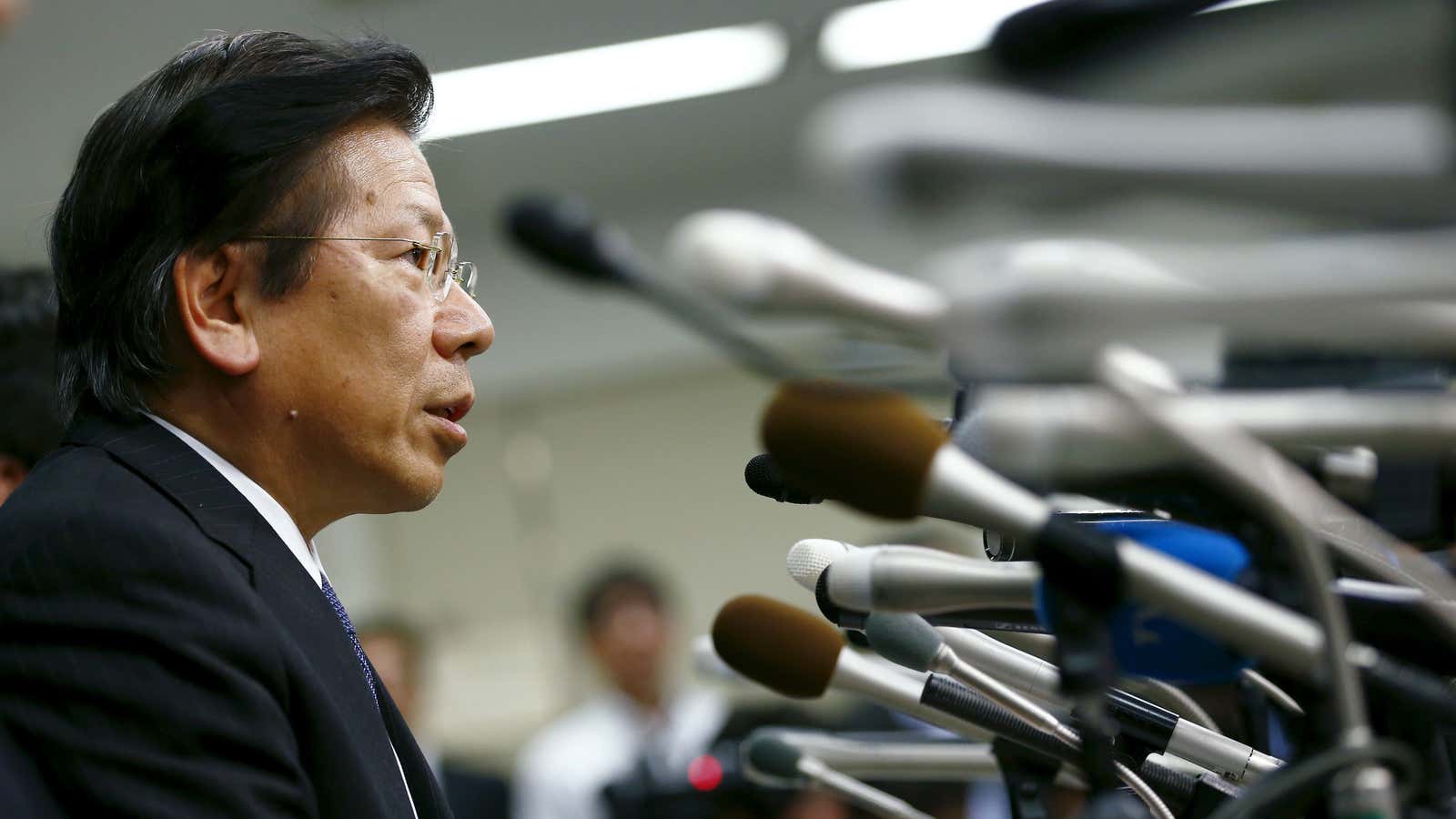Mitsubishi Motors said today (April 26) it has been improperly testing the fuel economy of its vehicles since 1991. The admission adds to a scandal that has already wiped out half the company’s market value.
The scandal began last week when the carmaker confessed it had manipulated fuel economy tests for over 600,000 vehicles produced since 2013, to make emissions levels look more favorable. Another carmaker, Nissan, discovered the inconsistencies in “minicars” made by Mitsubishi and sold under its own brand in Japan. Mitsubishi indicated that it would set up an independent panel (paywall) to investigate the matter further, and the nation’s transport ministry ordered it to submit data today.
Longtime observers of the company might have a sense of déjà vu. In 2000 the company revealed it had covered up defects and safety records. Then, upon further investigation, it became clear the underlying problems in that case went back not just years, but decades.
In this case, too, what appeared at first to be a problem going back a few years actually extends back a quarter century.
It was more bad news for Mitsubishi Group, the conglomerate of which the carmaker is a part. Today Japan lost a bid to build submarines for Australia. Mitsubishi Heavy Industries had been the lead company in that deal—valued at $40 billion and going to a French consortium instead. Mitsubishi Heavy Industries has also been hit hard by declining demand in the shipbuilding industry, which could hurt its ability to support Mitsubishi Motors as it and other group companies have in the past during the carmaker’s scandals.
Japan’s transport ministry indicated today it would establish a task force to examine fuel economy data submitted by automakers. That’s part of a broader trend of regulators more closely examining companies’ emissions and fuel economy claims in the wake of the Volkswagen cheating scandal. It’s becoming more apparent that carmakers can (and do) fudge numbers and results in all kinds of ways.
